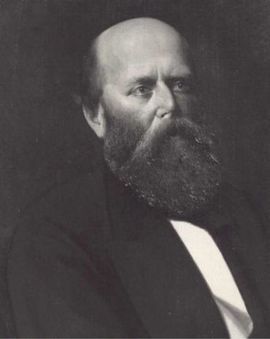Kantak, Kazimierz

Kantak, Kazimierz (Kasimir Kantak), 1862-86 member of the 2nd Chamber of the Prussian Landtag, 1867-71 member of the Reichstag of the North German Confederation. *22.3.1824 Poznan, †28.12.1886 ibid., lord of the manor, gentleman of indepndent means, chairman of several co-operatives. Between 1834 and 41 he attended the Maria-Magdalena grammar school in Poznan and, after a long period of illness, the grammar school in Culm/Chełmno. Because of his participation in the conspiracy to provoke an Uprising in the Polish politician areas he was sentenced to prison from 1845 to 1846 and imprisoned in Poznan, Graudenz, Sonnenburg and Moabit, but proclaimed innocent in 1847. Subsequently he remained in Berlin, joined the student volunteer corps of the Polish Academic Legion during the 1848 revolution, before finally returning to Poznan. After the Battle of Podgrzybów he was taken prisoner and imprisoned in the fortress of Küstrin. He was a student in Breslau and gained a lot of practical farming knowledge in Inowrazlaw/Inowrocław. In 1853 he purchased the estate at Dobieszewko near Exin/Kcynia. He was a member of several academic societies, including the Towarzystwo Naukowej Pomocy dla Młodzieży/Scientific Society for the Support of Young People in Poznan. From 1861 onwards he was the secretary of the Central Federation of Polish Estate Owners. In February 1867 he was elected as a member of the constituent Reichstag of the North German Confederation for the constituency of Inowrazlaw-Mogilno/Inowrocław-Mogilno; in August 1867 as a member of the Polish parliamentary group of the Reichstag for the same constituency. He criticised the actions taken by the Prussian government against the Polish January Uprising in 1863 and demanded recognition for Polish national rights. In the Prussian parliament and the constituent Reichstag he voted against the national constitution. During debates he articulated the protests of the Poles against the inclusion of the former Polish territories in the North German Federation. In 1883 he joined forces with other Polish members of Parliament to work for the reintroduction of the Polish language in the school in Poznan. picture: ca:1885, http://poznan.wikia.com/wiki/Kazimierz_Kantak
Further reading:
Hirth's Parlaments-Almanach, Ausg. 2, Berlin 1867, LIX; Ausg. 5, Berlin 1867, 69; Ausg. 8, Berlin 1869, 169; Reichstagsprotokolle 1867-1895, Register 1, 3, 14; Meyers Konversationslexikon, 4. Auflage, Leipzig, Vienna 1885-92, Bd. 9, 472; W. Wippermann: „Gesunder Volksegoismus“. Vorgeschichte, Verlauf und Folgen der Polendebatte in der Paulskirche, in: 1848. Revolution in Europa, hrsg. von H. Timmermann, Berlin 1999, 362; A. Kotowski: Zwischen Staatsräson und Vaterlandsliebe, Düsseldorf 2007, 90, 99.
Online:
http://zhsf.gesis.org, Parlamentarierportal, BIORAB Kaiserreich online
http://www.reichstag-abgeordnetendatenbank.de/
http://www.reichstagsprotokolle.de
http://regionwielkopolska.pl/wybitni-wielkopolanie/kantak-kazimierz-1824-1886.html
http://www.krzemieniewo.net/viewpage.php?page_id=1085
Axel Feuß, September 2016
Link to the minutes of the Reichstag:
http://www.reichstagsprotokolle.de